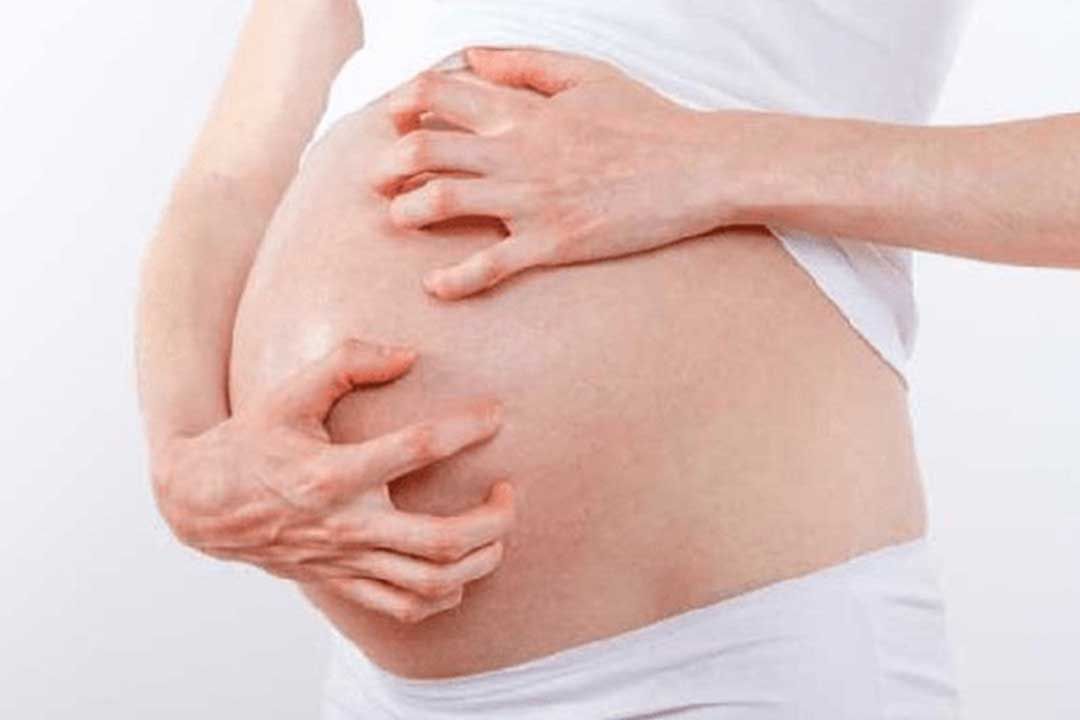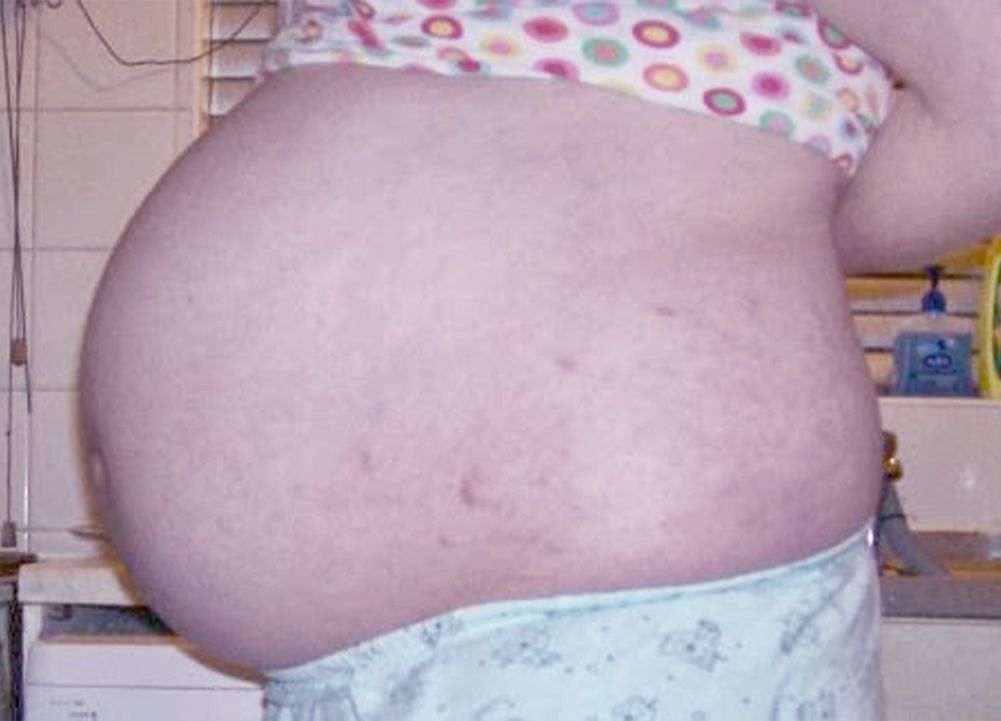Itching during pregnancy, as the blood flow to the skin, raises, it is prevalent to feel moderate itching, especially around your abdomen and legs. You might also endure itching as the skin surface on your abdomen stretches. As most itching during pregnancy is quite common and not a basis for concern, however further critical itching might signify an underlying liver state well-known as Intrahepatic Cholestasis of Pregnancy (ICP) or Obstetric Cholestasis (OC).
What Causes Itching During Pregnancy?
There are multiple causes of why you might experience itchy skin during pregnancy. These might involve:
- Stretching skin: First pregnancy and pregnancies with multiples are likely to induce the skin to extend quite a fraction further than it is.
- Dryness: Hormonal shifts during pregnancy can provoke itchy and flaky dry skin.
- Scents or fabric material: Contrasting materials and compounds can remarkably rub you the opposite way.
- Hormones: The hormonal shifts you endure throughout pregnancy can influence everything from mood to flow to, certainly, itchiness.
- Cholestasis: This is a liver complication that can occur in the accumulation of bile acids in the plasma that generates sensations of itchiness.
- Pruritic urticarial papules and plaques of pregnancy (PUPPP): This is a tingling redness that appears around stretch marks through late pregnancy.
- Prurigo: These harsh, itchy bulges on the forearms, legs, or belly that can develop in any trimester.
It’s essential to recognize where on your body you are feeling itching. Most pregnancies will include some itching around the abdomen and breasts as the skin surface in these regions is going through such multiple adaptations. Itchy skin around your stretch marks might be a consequence of PUPPP while tingling arms, including leg parts, are more inclined to be an outcome of fabric materials rubbing you the opposite way or prurigo.
Infrequently sensing slight itchiness is pretty common, however severe itching of around the abdomen, arms, and legs can be a warning that your body requires some caution. Many people also undergo vaginal itching through pregnancy, which might need medication. Besides, at times there might be outbreaks linked with pregnancy itching. Itchy skin is not usually considered an advanced pregnancy indication. Many sorts of redness typically barely develop later in pregnancy, and some might not settle till after your little one is born. That stated any time excessive or prolonged itching emerges in pregnancy; you should consult your doctor immediately.
Severe Itching During Pregnancy: Obstetric Cholestasis
Obstetric cholestasis (OC), also well-known as intrahepatic cholestasis of pregnancy, is a severe liver complication that concerns a few numbers of pregnant women, ordinarily in the last three months of pregnancy.
 Severe Itching During Pregnancy
Severe Itching During PregnancyWhat Causes Obstetric Cholestasis?
The reason for obstetric cholestasis is not apparent. As the pregnancy hormones following during pregnancy might reduce the natural flow of bile — the digestive fluid formed in the liver that stimulates your digestive system breaks down fats. In obstetric cholestasis, bile salts mount up instead of transmitting the liver, ultimately entering the bloodstream, which can make you sense itchiness. Your genes might perform a role. Obstetric cholestasis appears to run in families; however, it can happen with the absence of family history as well. If you have had OC in a prior pregnancy, you’re more inclined to acquire it over in the following pregnancy.
Obstetric cholestasis during pregnancy can make you remarkably uneasy. But, further alarming are the implied complexities for you and your infant. Infants of women with OC are more prone to be born precipitately or to have lung complications of breathing in meconium. Because of these complications, your doctor might reconsider persuading labor before you are due. The condition incites extreme itching, though without a rash. Itching occurs typically on the arms and legs; however, it can likewise influence other portions of the body.
Symptoms of Obstetric Cholestasis
The typical indication of OC is itching without rash, frequently on the palms and feet, although it might be further widespread. The itching can be continuous or intolerable and more acute at night. The following symbols and traits might be present in cases of cholestasis of pregnancy:
- jaundice (yellowing of the epidermis and the white region of the eye)
- dark urine
- loss of appetite
- queasiness
- pale bowel movements
- depression
- severe itchiness, including itching legs
 Severe Itching During Pregnancy
Severe Itching During PregnancyCan this Itchiness Harm the Baby?
Complexities from obstetric cholestasis during pregnancy might happen in the mother or the developing infant. In mothers, the state might provisionally alter the approach the body ingests fat. Inadequate conversion of fat could follow in reduced levels of vitamin K-dependent portions associated with blood clotting. Though this complexity is exceptional, and later liver difficulties are rare. In babies, the complications of obstetric cholestasis through pregnancy can be critical. These might involve:
- Being born too early (premature childbirth)
- Lung complications from breathing in meconium — the viscous, green thing that usually accumulates in the developing baby’s bowels yet which might move into the amniotic fluid if a mother has cholestasis
- The demise of the baby late in pregnancy prior delivery (stillbirth)
How to Get Relief From Itching During Pregnancy
Avoid using cleansing commodities that include potent foam agents (cleansers), and scents or perfumes. These could make your epidermis dehydrated or provoked, and consequently more inclined to itchiness. Clean with moisturizing soap-substitutes or moderate, unscented body-liquids preferably. Make sure to moisturize your skin correctly, optionally with unperfumed commodities. If you notice that you’re scratching while you’re sleeping, it might help to wrap cotton gloves at bedtime to guard your skin. Lotions, such as calamine cream, are reliable to apply in pregnancy and can give some comfort from itching. Your doctor might direct medication to decrease bile salts and soothe itching.
OC can alter your ingestion of vitamin K, which is vital for proper blood clotting so your doctor might advise you to consume vitamin K rich meals. That severe itchiness you’re sensing throughout pregnancy could be due to multiple complex things. It’s essential to consider any other traits you’re undergoing, the period of your itchiness, furthermore even simply your everyday activities to conclude how to resolve this agonizing difficulty. Since itchiness can be an indication of a more severe state, it’s crucial to confer with your doctor if it advances or any additional signs develop. After all, you don’t want your itching to mislead you from undergoing the morning sickness, indigestion, and many trips to the bathroom.
Also Read: Eye Twitching During Pregnancy

